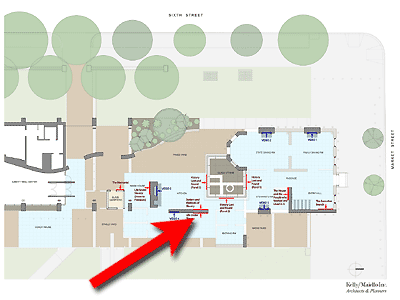Life Under Slavery
STOLEN
Some people can trace their roots back many generations with letters, a family Bible that record events and stories that connect them to the past or identify the village their family came from.
The history of many enslaved Africans is lost forever to their descendents: They were kidnapped and transported with few, if any, personal belongings.
They were given new names — often only first names. They were forced to learn a new language.
By brutality and oppression enslaved Africans were forced to give up their freedom and, with it, most of the direct ties to their cultures, values, religions and families.
INTENTIONAL BRUTALITY
Southern plantation owners feared rebellion, and enslaved Africans were treated harshly to break their spirits, accustom them to obedience and erase memories of independence. The enslaved were worked to exhaustion, underfed, and often succumbed to depression, poor health and inhumane treatment. They were isolated, forced to work long days, and often deprived of adequate food, clothing and shelter; their owners were free to beat, torture, or even rape them at will; such abuse was frequent and widespread.
Families were torn apart as they were bought and sold to new masters; they might not even know where family members were sent. Most were intentiona1yt kept illiterate; few records, journals or diaries rèuiai and, yet, family histories were kept alive with — storytelling, folklore and oral traditions.
ENSLAVED ON PLANTATIONS
The day-to-day lives of enslaved people varied from place to place. Most enslaved people who lived on the tobacco plantations of Maryland and Virginia or the rice plantations of the Carolinas and Georgia, were physically more remote from their slaveholders, and were able to preserve more of the cultures of the African societies they had left behind. They integrated African traditions with European and Native American cultures, creating strong communities sustained by faith.
ESCAPE
Rebellions and uprisings were met with swift retaliation and harsh punishment or death. Those who managed to escape were often returned to the exhausting and inhumane conditions they fled; and, those who harbored escapees were dealt with harshly.
Some like Hercules and Oney Judge did escape, and sympathetic individuals provided refuge for others desperate for freedom. Free black sailors helped some escape from the West Indies and the South to Northern ports.
AFRICAN-AMERICAN PHILADELPHIA
PHILADELPHIA: The Nation’s Capital 1790-1800
After much discussion it had been agreed that Philadelphia would be the nation’s capital for 10 years from 1790 to 1800, after which the capital would move to a new home on the Potomac River, Washington, D. C.
It was the second largest city in the nation with a population of 28,522; by 1800 the population had grown to 41,220. It was very diverse with immigrants and indentured servants from Europe and the Caribbean. Inspired in part by the American Revolution, French revolutionaries overthrew the monarchy. Inspired by the French Revoltution, Touissant L’Overture led a revolt against French rule in 1791 in Haiti. Many fled the violence in Haiti and escaped to the United States, settling in Philadelphia.
FREE BLACKS
In 1793 there were 2136 free Africans in Philadelphia; by 1800 the population of free Africans had increased to making it the nation’s most largest free black community.
ENSLAVED IN PHILADELPHIA
In Philadelphia the enslaved usually lived in or near houses with white people. There they were further removed from the traditions and heritage of their particular African history than those in the South, and more likely to learn a variety of skills. They had increased contact with more diverse populations; yet, enslaved Africans in the North were subject to the same laws and treatment as those on Southern plantations, their families were always threatened by forced separation, and their work was unpaid and often exhausting.
Those enslaved in Philadelphia observed the ease of movement of free Africans. The city was a hub of several escape routes for many seeking freedom; they found sympathetic assistance, despite the threat of punishment for helping fugitives.
Philadelphia also was the scene of numerous trials to free or deny liberty to African Americans. In 1800, Judge Richard Peters heard the case of two American shij?s carrying enslaved Africans captured by the naval sloop Ganges. Judge Peters ruled that the ship violated the 1794 Slave Trade Act which prohibited American ships from engaging in the slave trade. Ships of other countries could import slaves to America until 1808. All 118 Africans on board were freed into the care of the Pennsylvania Abolition Society and given the surname, Ganges.





